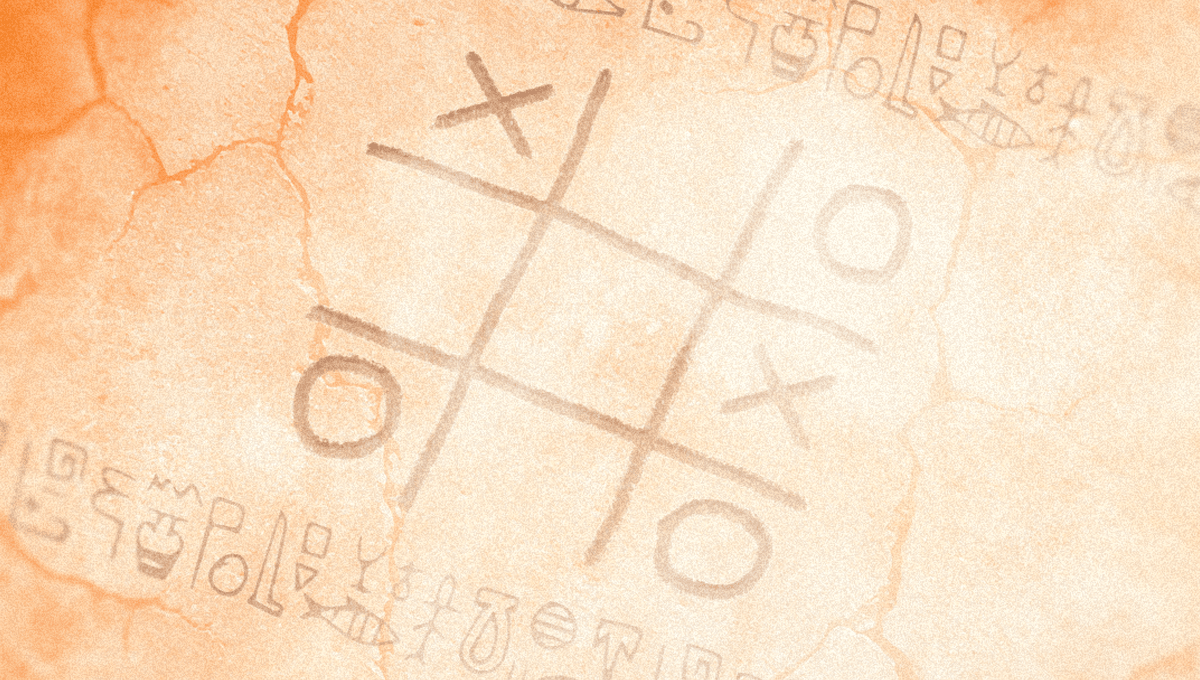
Stick two humans in an enclosed space with nothing to do, and before long, someone is likely to suggest a game of I Spy. Kids are so hot for smartphone games that it inspired its own meme format, and while certain generations might like to tell you this compulsion is a new thing – the fact is, humans have been playing games for thousands of years.
It’s believed that gaming actually predates language, begging the question: why do humans play games? We spoke to Kelly Clancy, a neuroscientist and author of Playing With Reality: How Games Shape Our World, to find out.
Who plays games?
Kelly Clancy (KC): It seems like it’s a pretty universal thing. One of the great things about looking at game boards in the ancient world is that people will just make anything into a game board. I see people playing tic tac toe on the walls. In some Egyptian ruins, there are game boards scratched into the roofs of old temples. [It’s thought that] there were priests sitting on the roof of temples waiting for a particular astronomical event, and just passing the time playing games together.
How widespread is it?
KC: People scratched games all over the ground, and all over everything, in ancient Pompeii. We find games in royal tombs, the Royal Game Of Ur was in a kingly tomb, and we see senet boards in some of the pharaohs’ nullification chambers. You can get these very ornate, beautiful game boards, but most people were just playing however they could play.
What sort of games?
KC: This was true of chess. In the 19th century, it was unbelievably popular, everyone played it, everyone subscribed to chess strategy magazines. It was what you talked about at work at the water cooler. The kings played it, nobility played it, poor people played it, call girls played it – everyone played chess. And so, it’s this really cool universal language.
These games are often kind of didactic in nature, where some of them are explicitly designed to transmit a particular message. Some games are not really so fun to play when you’re an adult, like snakes and ladders. But that’s part of what the message was intended to be with that game. It was apparently originally invented by an Indian holy man to teach the virtues of karma. If you do good things, you go up to heaven, if you do bad things, you slide down the snake. So, it’s something that was meant to teach kids these ideas.
Why do we play games?
KC: Games are a really powerful form of education, and this is something that is becoming clear from both neuroscience and also it’s an idea that’s been around for a long time. Plato thought that games were really important education for young kids to learn how to follow rules, so that as adults, they would know how to follow laws and make democracy work.
They’re this very natural training principle for us, and it also turns out that they can be very addictive.
Do you play games?
KC: Video-game-wise, I really love puzzle games like Fez. I have this, kind of tragic, thing where I get nauseated very easily for like, first-person games. So, there are a lot of games in the world that I desperately want to play, but I cannot.
I end up playing a lot of third-person games like The Legend of Zelda: Breath of the Wild and Tears Of The Kingdom. I also admit that I indulge in the occasional Animal Crossing when I need some cozy time.
This article first appeared in Issue 25 of our digital magazine CURIOUS. Subscribe and never miss an issue.
Source Link: Why Do Humans Play Games?